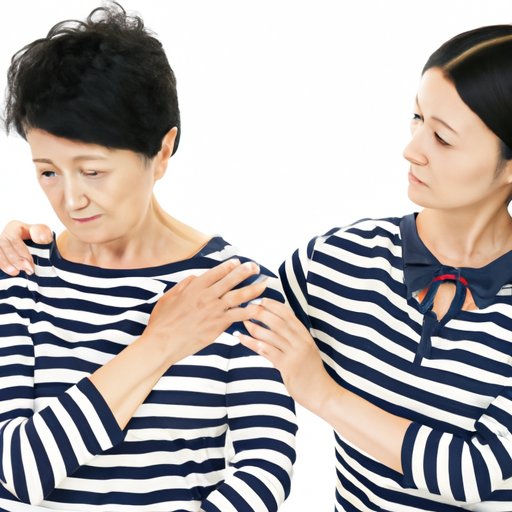Introduction
Caring for seniors or those with disabilities in a care home is a noble profession. However, it requires more than just providing basic physical care. A vital aspect of caregiving is to uphold residents’ dignity. This article aims to highlight the importance of showing dignity in a care home and provide practical tips for caregivers.
Taking care of residents in a dignified manner has positive outcomes on their physical and emotional well-being. Caregivers must acknowledge the fact that their actions and words have a significant impact on the residents.
The Importance of Dignity in a Care Home
Dignity is the respect and compassion that we accord to people, preserve their privacy, and offer individualized care. It is essential for caregivers in a care home to uphold the dignity of residents. Offering dignified care can help in maintaining their self-respect and confidence. On the other hand, when residents are subjected to undignified treatment, their mental and physical health can be impacted.
Poor treatment can affect an individual’s autonomy and independence, leading to feelings of helplessness, anger, and frustration. Hence, showing dignity is fundamental to the residents’ overall well-being.
Practical Tips for Caregivers to Show Dignity
Here are some practical tips caregivers can use to show dignity to their residents.
Use Respectful Language
Language is a tool that caregivers use to communicate with residents. Caregivers should speak to residents using respectful language, calling them by their preferred names, and being mindful of their tone. Avoid condescending language or treating them like children.
Respect Residents’ Privacy
For residents in a care home, privacy can be rare. Caregivers must respect residents’ privacy by knocking before entering a room, preserving confidentiality, and ensuring residents are comfortable with whatever activity they are participating in.
Dress Appropriately
Caregivers should dress appropriately, professionally, and modestly. Choosing attire that is comfortable but polished reinforces the dignity of the caregiving profession.
Real-Life Examples
Caregiving can be a challenging job, and care providers may face situations where it is challenging to show dignity to the residents in their care.
Handling Difficult Residents
Sometimes a resident may exhibit behavior that is challenging to handle. For instance, residents living with dementia may exhibit aggressive behavior. Caregivers cannot react with frustration as this would be a breach of the residents’ dignity. Caregivers should remain patient, empathetic, and reassuring while trying to create a positive environment that is conducive to the resident’s well-being.
Overcoming Language Barriers
Caregivers should use language that residents can understand, avoiding jargon or words that are not familiar to them. In cases where the caregiver and resident do not speak the same language, a translator can help bridge the language divide.
The Impact of Showing Dignity
Showing dignity can make a meaningful and positive difference in residents’ lives. It’s the simple acts of kindness that can transform the caregiving experience.
Addressing a Resident by their Preferred Name
Addressing residents by their preferred name can calm them down, enabling them to build trust with the caregiver. Using residents’ preferred names and being warm and friendly can help them connect with the caregiver and make the caregiving experience a more positive one.
Offering Hand Massages
The act of massaging a resident’s hands can alleviate anxiety and offer comfort. It’s a simple act that can express kindness, empathy, and reduce the extent of symptoms such as agitation and aggression.
The Rewards of Providing Dignified Care
Providing dignified care is a fulfilling and rewarding experience. It can help caregivers appreciate every moment of their work and show their professional acumen.
Meaningful Experiences
Caregivers can provide care that goes beyond physical care. By taking the time to understand residents’ preferences and needs, caregivers can provide emotional support that aids in preserving the resident’s mental well-being, maintain their autonomy, and reinforce their confidence.
Personal Satisfaction
Doing a caregiver’s job in a dignified way can create a sense of satisfaction and fulfillment. Caregivers can take pride in knowing that they have contributed positively to someone’s life.
Conclusion
In conclusion, the dignity of residents in a care home should be a top priority. Caregivers should provide comfort, respect, and professional care to every resident. Small acts of kindness can make a significant difference in residents’ lives, leaving them feeling loved and respected.
If caregivers can navigate these challenges, there are immense rewards of providing dignified care, reinforcing their professional ability and improving satisfaction in their work. Remember, our elders deserve love and dignity, and it is up to us to provide it.
As Pearl S. Buck once said, “Our society must make it right and possible for old people not to fear the young or be deserted by them, for the test of a civilization is in the way that it cares for its helpless members.
(Note: Is this article not meeting your expectations? Do you have knowledge or insights to share? Unlock new opportunities and expand your reach by joining our authors team. Click Registration to join us and share your expertise with our readers.)
